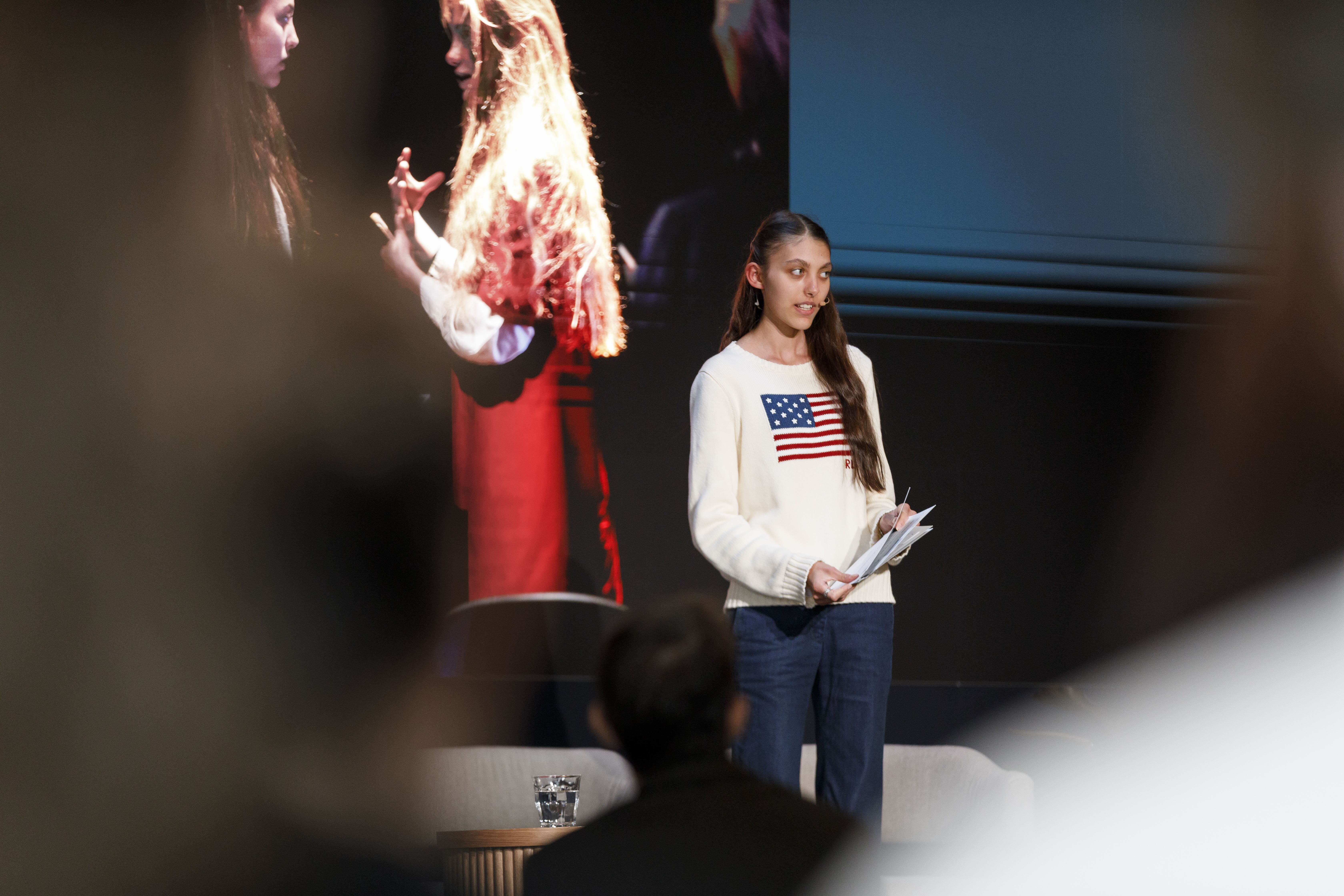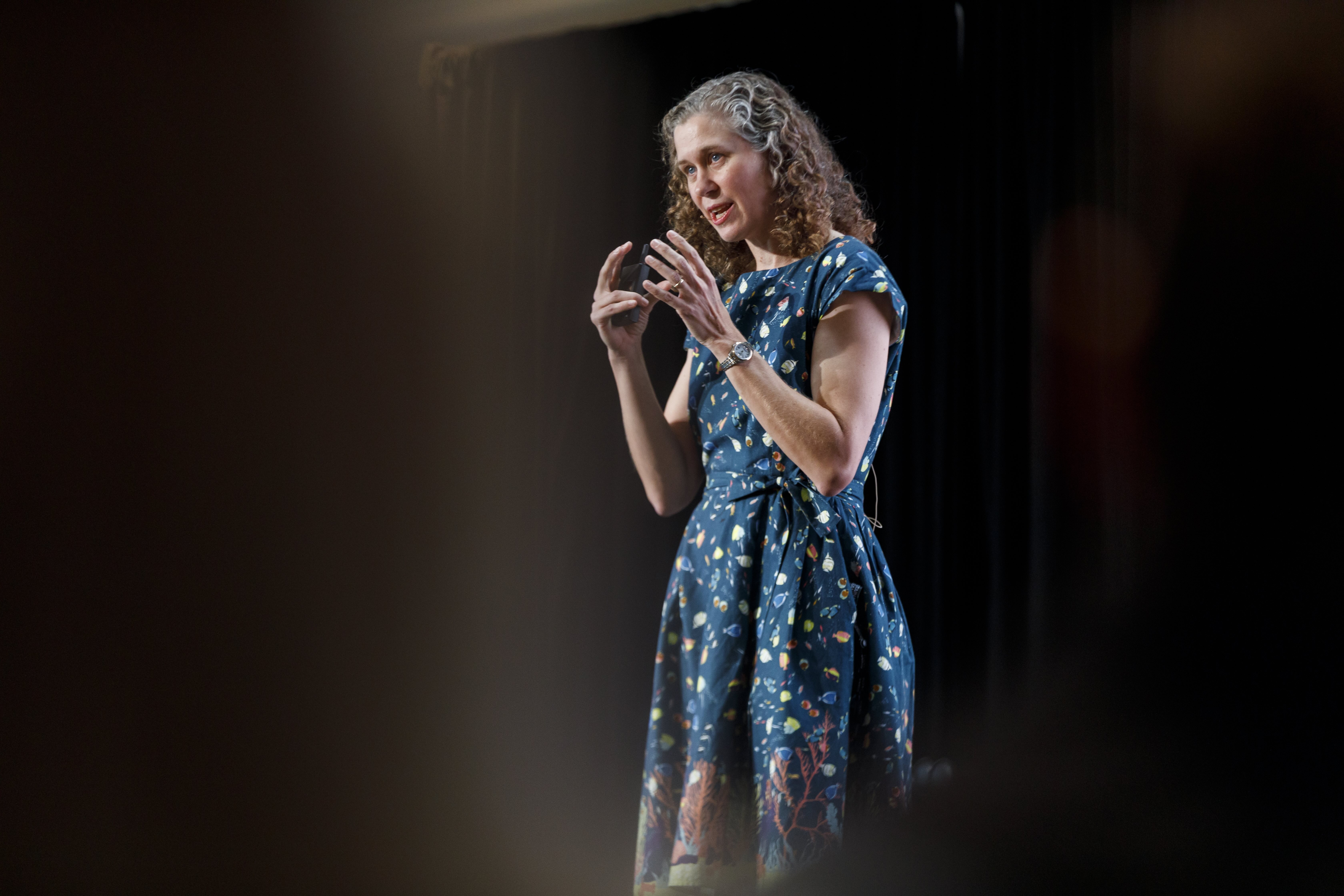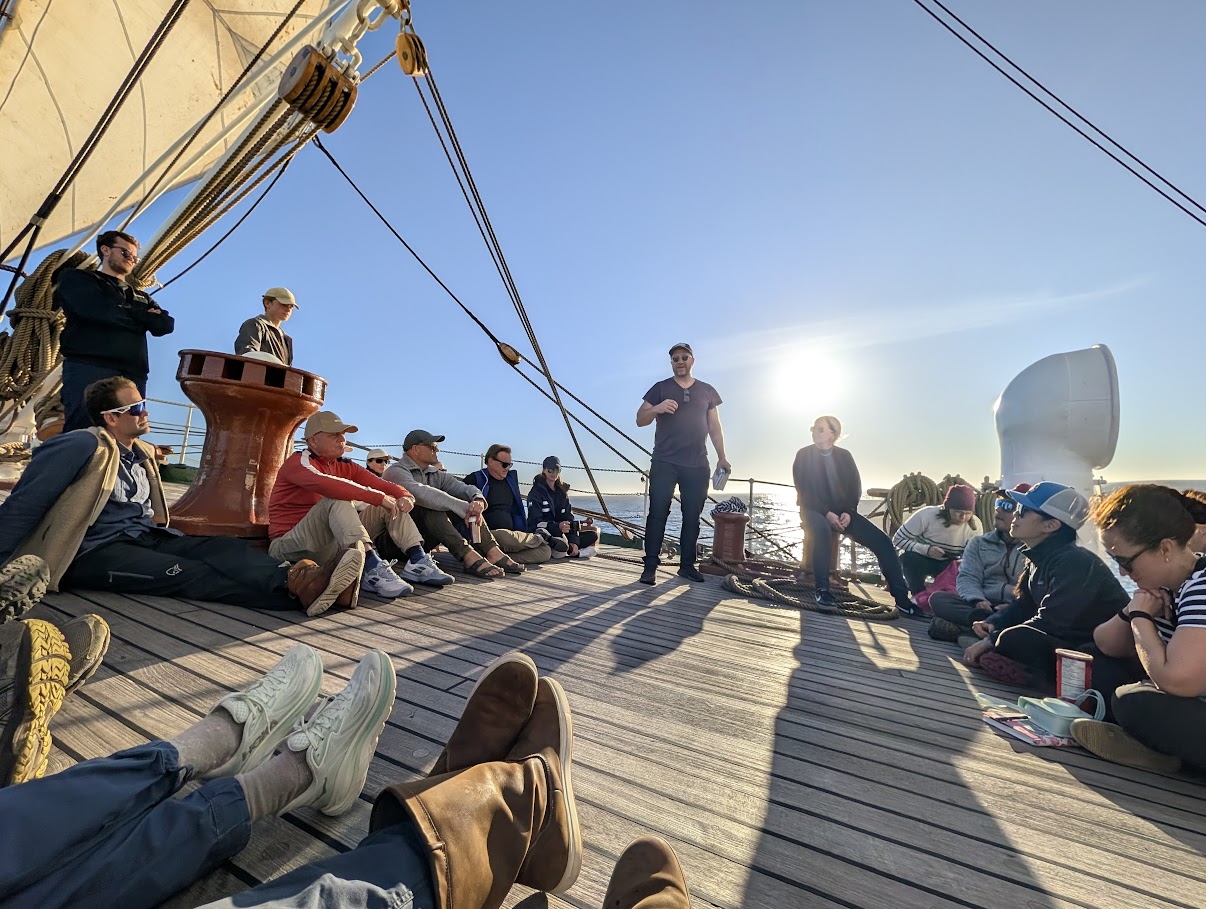Penelope Lea's talk at SOS

In one of Sylvia Earls documentaries, she says that if she could have chosen the exact time in human and natures history to been born, it would be now.
.JPG)
It would be now,
she continues, because now we have the knowledge.
We know what is happening to our common home, our common caregiver.
We know what is happening to very nature we have all evolved from.
We know how it will affect us and which of our actions that are destructive.
We even have the solutions by now.
Now is when it is all decided.
It would be now, she said, and hearing her make that statement left me feeling
strangely relieved.
I am born now.
And all of you are as well.
Because: with knowledge we all receive new responsibilities.
New choices.
And if we make these new choices we ultimately receive:
New possibilities. New beginnings. We get new lives.
We can never, ever again claim that we did not know the consequences of our actions.
We simply cannot
Every choice we make now, we make consciously. Deliberately.
The oceans are supporting us with nothing less than life itself.
We are supporting it back with death. That is what we are currently choosing to do.
I have worked for climate justice since I was eight and attended climate conferences and business summits since I was ten.
Sometimes as I sit down to prepare a speech, I feel silence spreading inside of me. It is a sense of pain.
I ask myself what may I contribute with that hasn’t already been said several times before?
We have talked about the science, trying to contribute to conveying life-saving facts.
The most desperate words have been used, and repeated, to try to convey
the seriousness and the urgency of it all.
You know them already: last chance, code red, how dear you, extinction.
They are all more than justified. Do we listen to them?
I have been searching for words that may put the listeners in my generations position, just for a while, hoping that it would make decitionholders feel how we feel, and react on it.
I have been talking a lot about love, which is my strongest driving force.
The one force our choices and actions really should be about.
We have talked about nature, trying to contribute to us remembering how we are so connected to it, trying to hold high what really matters in life, reallocating our values and goals:
Business opportunities, what does that really mean?
How much do we need to earn in this life to be able to live peacefully, respectably?
When do we ask ourselves that question?
When should we ask ourselves that question?
Now is the time.
How much of the future are we allowed to sell out?
Are we really allowed to sell out more than we need, knowing that we sell something that is not ours?
Do we lie ourselves out of that notion?
Sustainability, are we talking about the same thing when we use that word?
I use the world cautiously, as I do with the words “I love you”.
To me their meanings are connected.
Green growth? Where are the boundaries for that, because we know that there are boundaries for a growth that may be called green.
We have talked about nature in ways that could help us remember how we cannot objectify nature any longer. Because as we keep on objectifying nature, we objectify ourselves as well.
I have talked a lot about hope.
Over the first years of my activism only because I never went anywhere without getting the question of whether I had hope or not, as if my hoping really mattered at all.
Later on, I have talked a lot about hope voluntarily, even eagerly.
I have made it part of my strategy plan. Being so blessed as to live in a democracy, I believe my continuous hopes and dreams are one of many tools to hold people of power accountable.
I choose to fiercely fuel my hope and make it thrive.
I have talked about war and peace, as well, because how we cope with the nature and climate crises is tightly connected to our possibility to retain and maintain peace and security, humanrights and democracy.
Everything is at stake now.
So, what do we say when it has all been said before and it still does not seem to make the difference needed?
How do we connect to values that support life, that supports courage. What may we communicate to connect to action?
When I feel silence spreading as I am to write a speech,
I try to remember how I am a small, but proud part of a strong, old, resilient movement for nature and climate justice, for humanity.
And I simply accept that I repeat myself.
I encourage myself to believe in the repetition of facts
Believe in Sylvia Earls wish.
We are born now.
Again and again.
Over the last months we have obtained and strengthened two important global agreements. The convention on Biological diversity and UNs Convention on the law of the sea.
The 30 by 30 target is now agreed upon.
Finally!
Still, I guess it comes as no surprise that I do not agree with the Norwegian government on what the word conservation demands of us.
I believe we can do so much better than we are currently planning for.
I believe it is given that Norway can settle on nothing less than a full protection on 30 precent of our oceans and our nature
And that we should feel lucky to be able to do so.
As I am a Norwegian, and as we are here in Norway, I need to talk about my own country and about the understanding of the different roles we all play.
Norway is a small country, five and a half million people
We have the second longest coastline in the world and the second highest number of Island.
We have responsibility for artic and antartic seas and shores.
We are a rich country, and as you know we have earned our money on oil and gas production, the driving force of climatechange.
We have a stable democracy. And I am not saying this in order to take the stability, or the democracy, for granted, because I believe none of us can do that right now.
Still, it is important in the understanding of the roles we have the great possibility to play.
Because my country often plays a role in the alinement of global agreements.
Diplomacy is hard.
The need for consensus makes it even harder.
So, we step down our goals to get an agreement.
We need global agreements, we need collaboration.
Still, we may never, ever settle for a moment and believe that the global agreements are enough. We all know that agreements that needs consensus will never meet the demands.
Therefor we need to use the role our domestic policy and businesses may play, to make up for the impact of the requirement of consensus in global agreements.
There is, in my opinion, no excuse as to why Norway
Still keeps on handing out oil exploration licenses.
No excuse as to why we are one of two countries in the world that still allows dumping of mine waste in our fjords (as if we have not dumped enough in our seas already)
No excuse
why Norway calls it conservation also in areas where we still allow for instants seabed kelp trawling
There is no excuse
as to why the Norwegian government is not talking about overconsumption and avoid confronting the systems that feeds on it.
This should simply not be one of the roles we choose to play.
There are so many other spots open.
We are born now.
But we were not born yesterday.
Species that have gone extinct cannot be revived.
Ecosystems that are wiped out cannot exist like they did before.
We cannot bring the people we have lost to climate disasters back to life.
When the damage is done the land will never be the same.
The soil will never grow the same.
The sound of the wind will never feel the same.
The plants won’t flower like they used to.
And I believe we, as humans born today, change too.
By choosing not to act in any way possible, with the short time we have left,
I believe we lose parts of our own humanity, even personality.
When we continue to allow inaction despite having all the solutions needed,
we accept more distress, more lives to be lost, more violence.
And by doing so I believe we lose the bond between nature and us,
but also, the bond between each other.
When we allow greed to dominate politics and business,
we build a world that brings out human characteristics that are destructive
And we diminish the characteristics in humans that have shown to be fundamental for creating a just development:
kindness, empathy, solidarity, and resilience.
I am afraid that we, by doing so, set a dangerous standard for crisis management, for leadership, in the years to come.
We are all needed.
There are so many spots open for us to fill out in the play for our future.
So many roles available for us to contribute thorough!
Still, I beg you to remember
that none of the roles are separate from one another.
You cannot make one decision
as a politician, a businessperson, a diplomat,
that do not support and strengthen
your role as a parent, a grandparent, someone’s best friend, a fellow human being,
being born now.
You simply cannot.
That is not a role to play.



.JPG)






.webp)